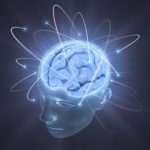Suggestion to the NIH to create an ultrastructure-quality human brain bank
Note: Because of my research developing electron microscopic imaging techniques for connectomics, I was invited to participate in the recent NIH/DOE Brain Connectivity Workshop Series discussing the possibility of mapping the connectome of an entire mouse brain. Speakers in that workshop series were all asked to submit ideas to NIH Public Crowdsourcing site on the […]






